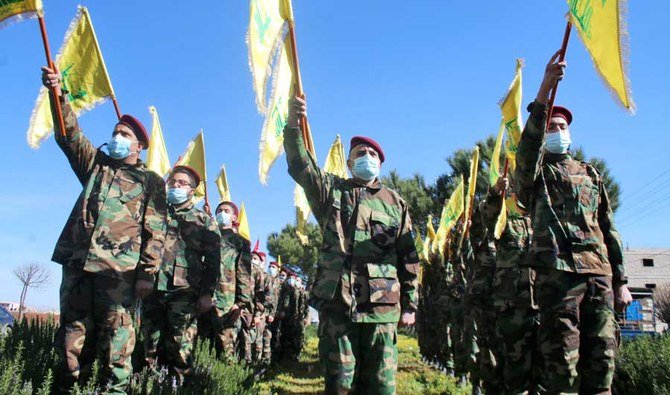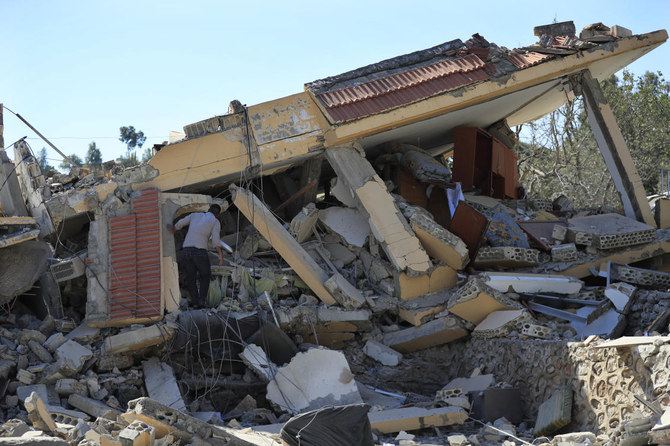BEIRUT: Hezbollah has walked away from a previous agreement to form a Lebanese government of nonpolitical specialists, claiming that any leadership not backed by political forces “will go down in a week or two.”
The militant party’s change of tack has shattered hopes that an 18th meeting between President Michel Aoun and Prime Minister-designate Saad Hariri scheduled for next Monday would end the long-running stalemate over the formation of the government.
Hezbollah leader Hassan Nasrallah’s comments, made in a televised address on Thursday, also undermine French efforts launched by President Emmanuel Macron to form a government free of political forces in order to gain the confidence of the international community and help Lebanon recover from its crippling economic and health crisis.
Mustafa Alloush, a leading figure in Hariri’s Future Movement, said: “There is a chance to agree on the formation of the government on Monday, but Hariri has no intention of bringing back a political government because it will inevitably fail, based on previous experience.”
Aoun remained firm in his demands for a government of 20 ministers with the blocking third, while Hariri seeks a government of 18 specialists.
The disagreement between the two escalated on Wednesday after an exchange of statements, with Aoun calling on Hariri to step down if is unable to form a government.
Hariri responded by asking Aoun to set a date for early presidential elections.
Hopes that Monday’s meeting could end the political impasse lifted the Lebanese pound to 11,500 against the US dollar after it had earlier exceeded 15,000 on the black market.
However, the currency lost value again on Friday after Nasrallah’s address.
In his speech, the Hezbollah chief criticized the International Monetary Fund, on which Lebanon relies for assistance, and attacked calls for Lebanon’s neutrality, saying that these were part of efforts to include the country in the “US-Israeli axis in the region.”
Nasrallah also targeted the policies of Lebanese central bank Gov. Riad Salameh, warning him of the need to improve the dollar exchange rate.
The Hezbollah leader called on Hassan Diab, the caretaker prime minister, to make his government operational “as a plan B in the event that a government is not quickly formed.”
He also condemned protesters blocking roads, saying that such actions are “forbidden.”
Nasrallah devoted part of his speech to defending party members who receive their salaries in dollars.
He said: “The members of the military mobilization force do not receive a salary in the first place. A large part of those who work within the institutions receive their salaries in Lebanese pounds. Those who are getting paid in dollars are those whose salaries are too low to support themselves. We asked them to take a monthly initiative to help those around them.”
The address brought widespread anger, with a source in the Maronite Patriarchate condemning the “betrayal” of Patriarch Bechara Al-Rahi’s demand for a neutral Lebanon.
Sami Gemayel, leader of the Kataeb Party, asked: “What kind of government will they form if that is the speech given before its formation?”
He called on “countries to shoulder their responsibilities toward Lebanon because the problem is not only internal but external as well.”
Gemayel also targeted Nasrallah, saying: “Lebanese citizens do not want a civil war. You may be seeking war, but do not threaten us with a war.”
Meanwhile, after a meeting on Friday between the central bank governor and the president’s financial adviser, Charbel Cordahi, the president’s media office said: “Salameh announced that the central bank will start working on its electronic platform, so that all operations are recorded and become the main reference for the real market rate.”
The central bank’s decision includes “allowing banks to trade in currencies from next week and to register transactions at their real price on the platform.”






















